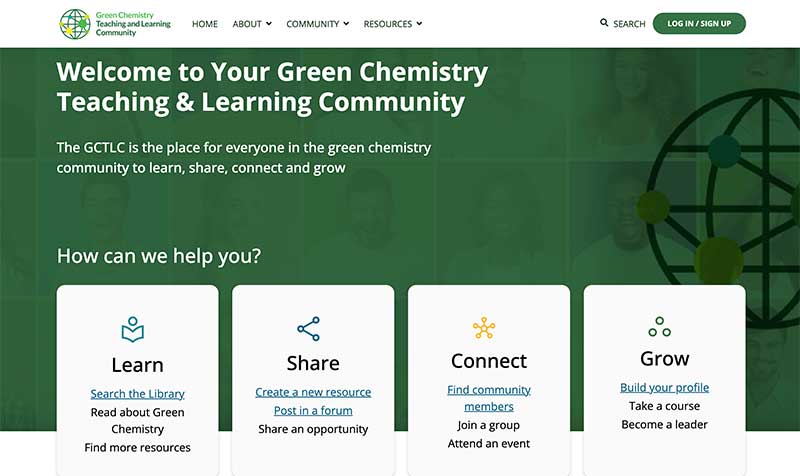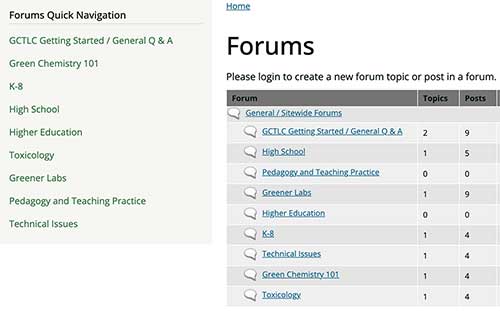Leveraging the Power of Drupal to Help Build a Green Chemistry Community

The Green Chemistry Teaching and Learning Community (GCTLC) is an initiative of Beyond Benign and the American Chemical Society Green Chemistry Institute. Its goal is to be an online community to bring members of the green chemistry community together to learn from each other and share resources.
A key feature of this community is the sharing of ideas and resources related to green chemistry concepts and education. Their stated goals include “collectively advancing the integration of green chemistry across the education continuum and transforming the way science is taught.”

As an educational resource, GCTLC also needed a way to ensure academic standards are maintained for learning materials shared by and with the community. This required a peer review process that was both rigorous and flexible. At the same time, as a non-profit organization budget limits meant it needed to be an out-of-the-box solution as much as possible. Skvare’s team of Drupal and CiviCRM experts leveraged years of experience with other member organizations to build a solution using Drupal content moderation and notification workflow allowing the GCTLC website to be a hub for the Green Chemistry Community to share resources and ideas. Building off Drupal’s built-in features, Skvare’s site builders worked with Beyond Benign’s team to create a Learning Object content type that includes more than 50 fields of information along with attached resources of various types.
With content moderation, GCTLC users can create drafts, save, and submit learning objects when completed. Editors are notified when a new learning object is ready to be reviewed and can assign the review to another community member who serves as a peer reviewer. After the review, editors receive recommendations from the peer reviewer and can publish and share the content with the community, seek additional information or clarifications from the submitting author, or recommend rejection of the learning object.

Multiple contributors can be listed on learning objects and, after publication, authors can display their submitted learning objects on their public dashboard where they also can feature ongoing work, and share more information about themselves and their work. Learning objects also can be easily searched by keywords, audience, types, and green chemistry principles, and be added to collections of similar resources.
 While much information is available to the public in learning objects, the main feature is the attached resource which can be multiple documents of various types, from a simple PDF that provides instructions to conduct a class experiment to audio or video files such as a class lecture. Through a custom feature developed by Skvare, GCTLC can track when attached resources are downloaded allowing the organization to share crucial data with donors and learn more about users’ interests and favorite resources.
While much information is available to the public in learning objects, the main feature is the attached resource which can be multiple documents of various types, from a simple PDF that provides instructions to conduct a class experiment to audio or video files such as a class lecture. Through a custom feature developed by Skvare, GCTLC can track when attached resources are downloaded allowing the organization to share crucial data with donors and learn more about users’ interests and favorite resources.
Leveraging the best features of CiviCRM’s open-source constituent relationship management software, Skvare also provided a way for GCTLC to communicate with community members based on their download history. This can allow them to inform members about other related resources or events.
Using Drupal’s CiviCRM webform module, Skvare’s team also built a simple way for users to join the GCTLC community while providing institutional connections that can be leveraged by the platform to connect users across the nation and the world based on similar interests. Users can participate in public or private discussions through forums, share resources or events, and post about interesting job or internship opportunities.